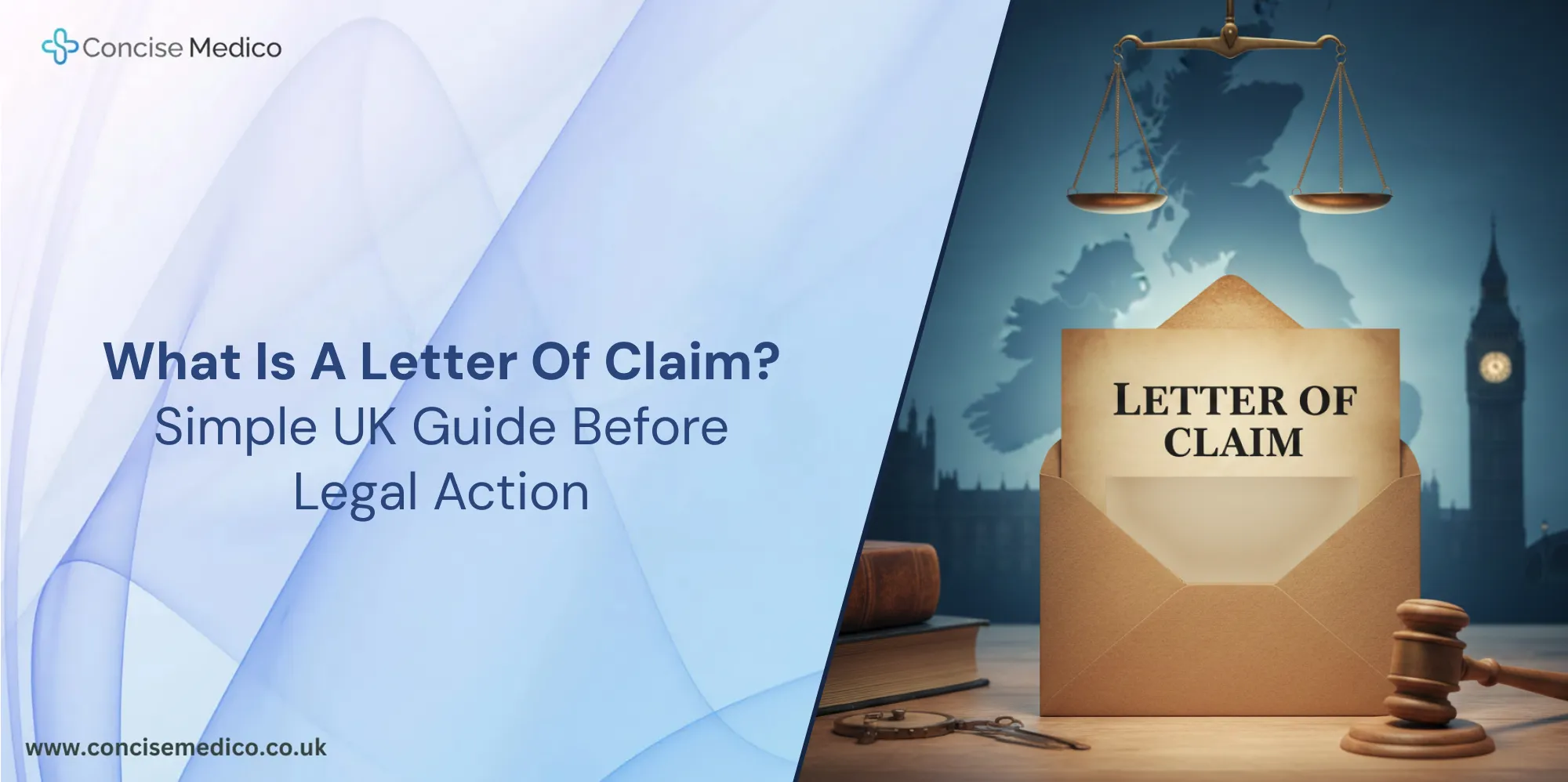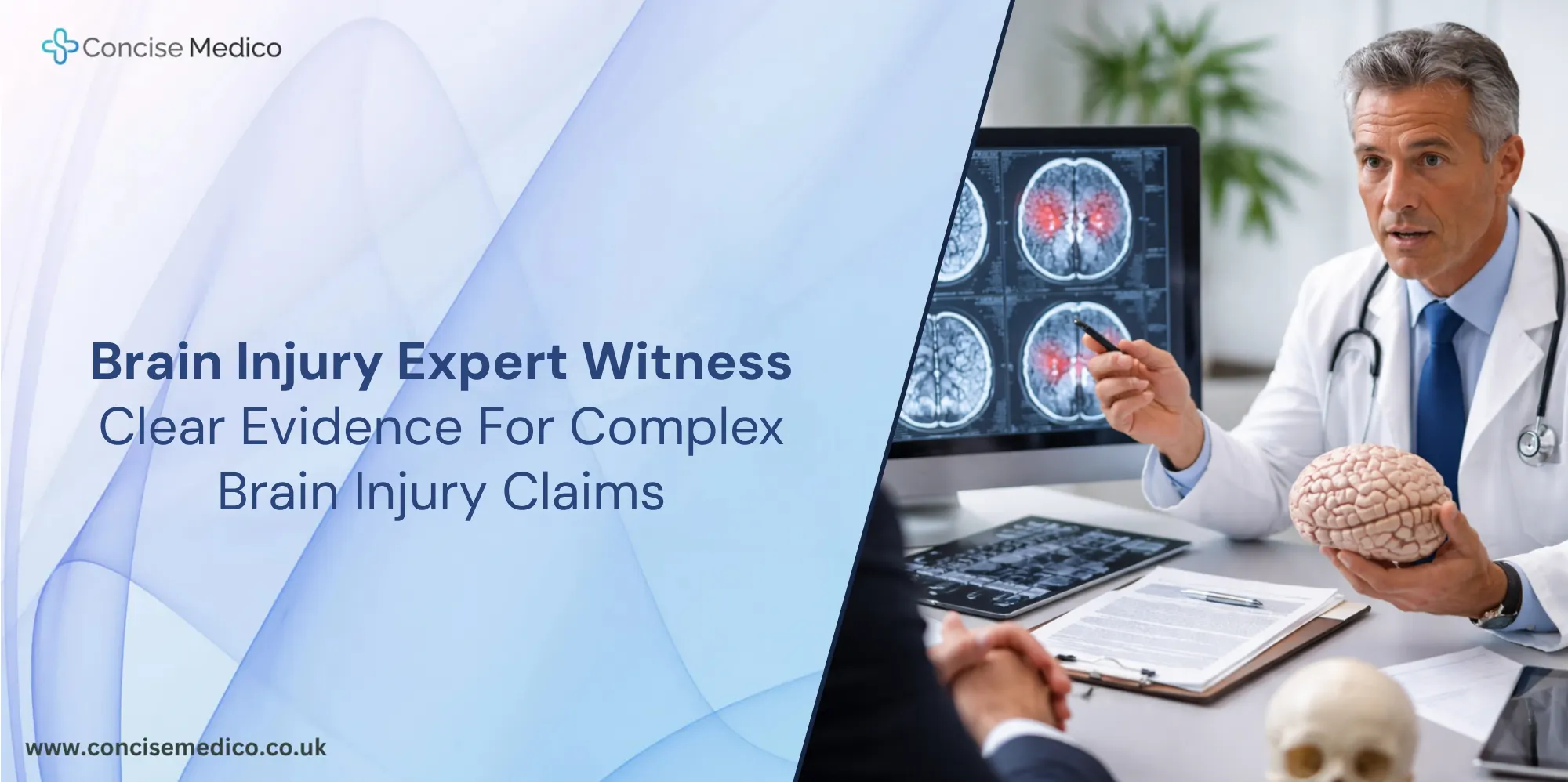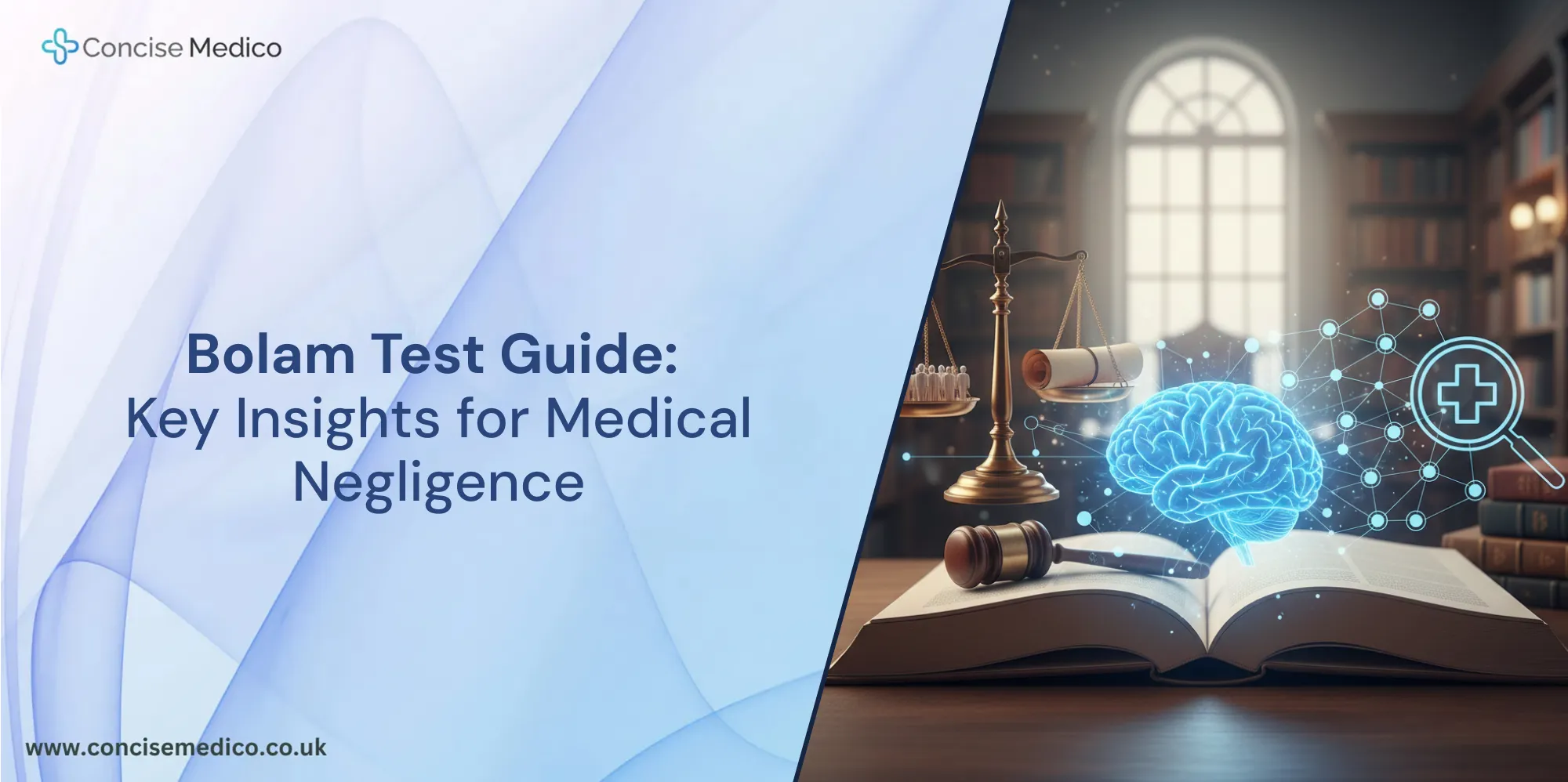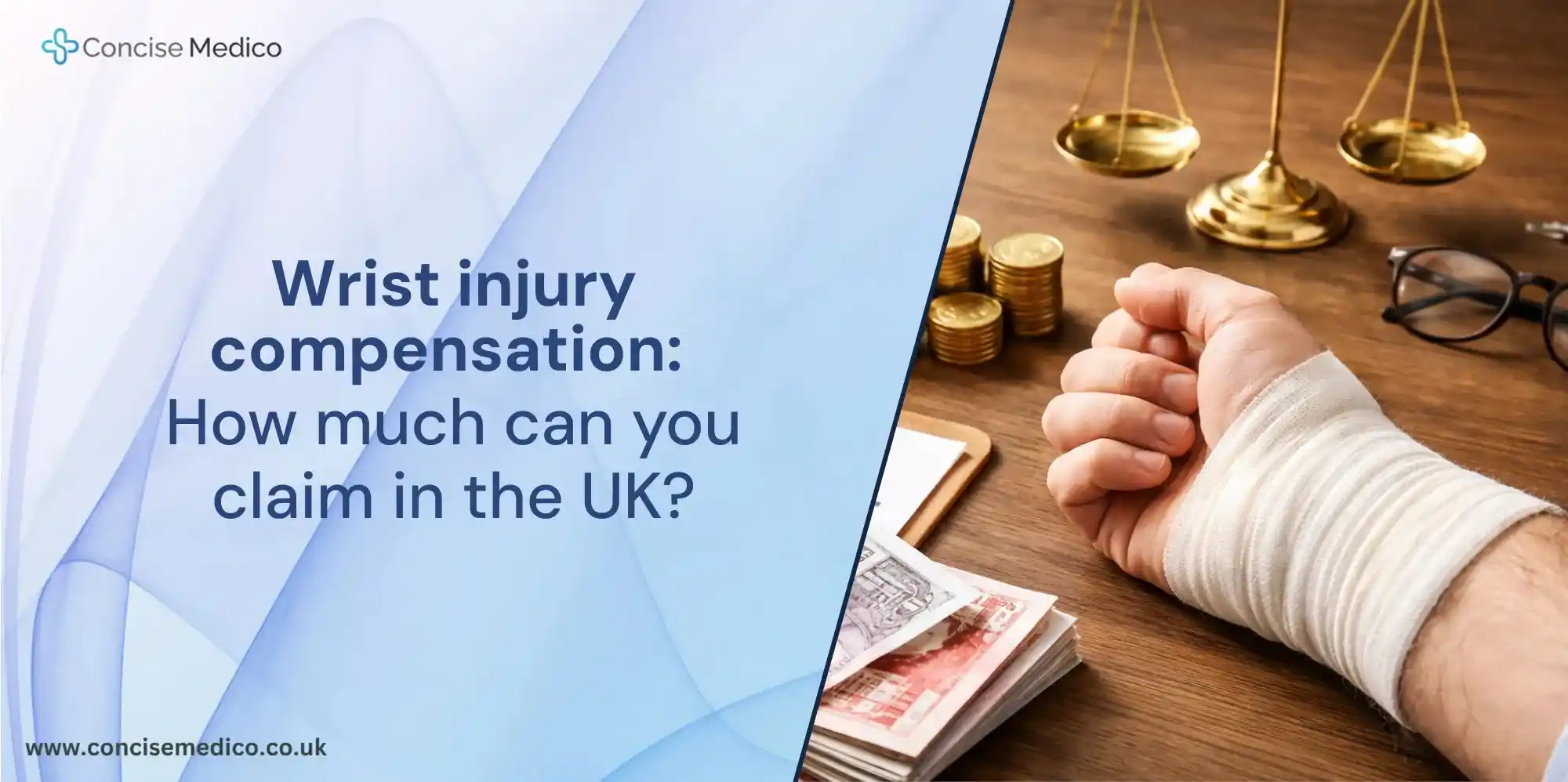TABLE OF CONTENT
- What is PTSD
- Psychological Therapies: Core Treatments for PTSD UK
- PTSD Medication UK
- Combination Treatments for PTSD UK
- How to Deal with PTSD: Practical Tips
- Professional Help for PTSD Treatment
- When to Seek Immediate Help
- Take the First Step Today
- FAQs
Living with PTSD presents considerable difficulties. You can tackle PTSD, no matter if you experience it or are helping another who does. Situations can improve with time and help. This guide offers clear advice on handling PTSD. We’ll also look at the best treatments for PTSD UK residents seeking real support.
Understanding how PTSD affects you, and what steps you can take, is the first move toward healing. This blog is here to offer the full picture on dealing with PTSD and finding the right PTSD treatment when you need it most.
What is PTSD
Post-traumatic stress disorder is a basic mental health issue. It can arise after a person experiences or sees a threatening, or troubling event. PTSD can come from many things. It could be war, abuse, accidents, disasters, or personal losses.
According to the WHO, about 3.9% of the world population has had post-traumatic stress disorder (PTSD) at some stage in their lives.
Therefore, knowing what causes PTSD and spotting its early symptoms is the first big step in recovery.
Read more about Do I Have PTSD? Understand Post Traumatic Stress Disorder
As trauma expert Judith Lewis Herman said,
“The recovery process may be conceptualized in three stages: establishing safety, retelling the story of the traumatic event, and reconnecting with others. Treatment of posttraumatic disorders must be appropriate to the survivor’s stage of recovery.”
Judith Lewis Herman
Once you realise this, you can better find the right treatment for PTSD. You can also access the best treatments for PTSD UK.
Psychological Therapies: Core Treatments for PTSD UK
Treatments for PTSD UK, psychological therapies are often the first choice. They help you understand your feelings. They also help you work through trauma and build safety in your life.
Here are the key psychological treatments for PTSD UK that you should be aware of.
Cognitive Behavioral Therapy (CBT) for PTSD
CBT is the best process for handling PTSD. Its main goal is to help you shift unhealthy thoughts that can remain after trauma. CBT is a top choice among treatments for PTSD UK.
Key Benefits of CBT for Dealing with PTSD
Reframing Negative Thoughts
- CBT helps you find the harmful beliefs that keep trauma alive.
- If you blame yourself for what happened, CBT can help. It shifts your thinking to a kinder, fairer perspective.
- Changing your thoughts about trauma can make dealing with PTSD less heavy. It also creates room for healing.
Behavioral Exposure
- CBT helps you slowly face your fears. You’ll confront memories and situations that scare you.
- Facing these reminders in a safe way reduces the fear linked to them over time.
- It forms a key part of structured plans on how to deal with PTSD.
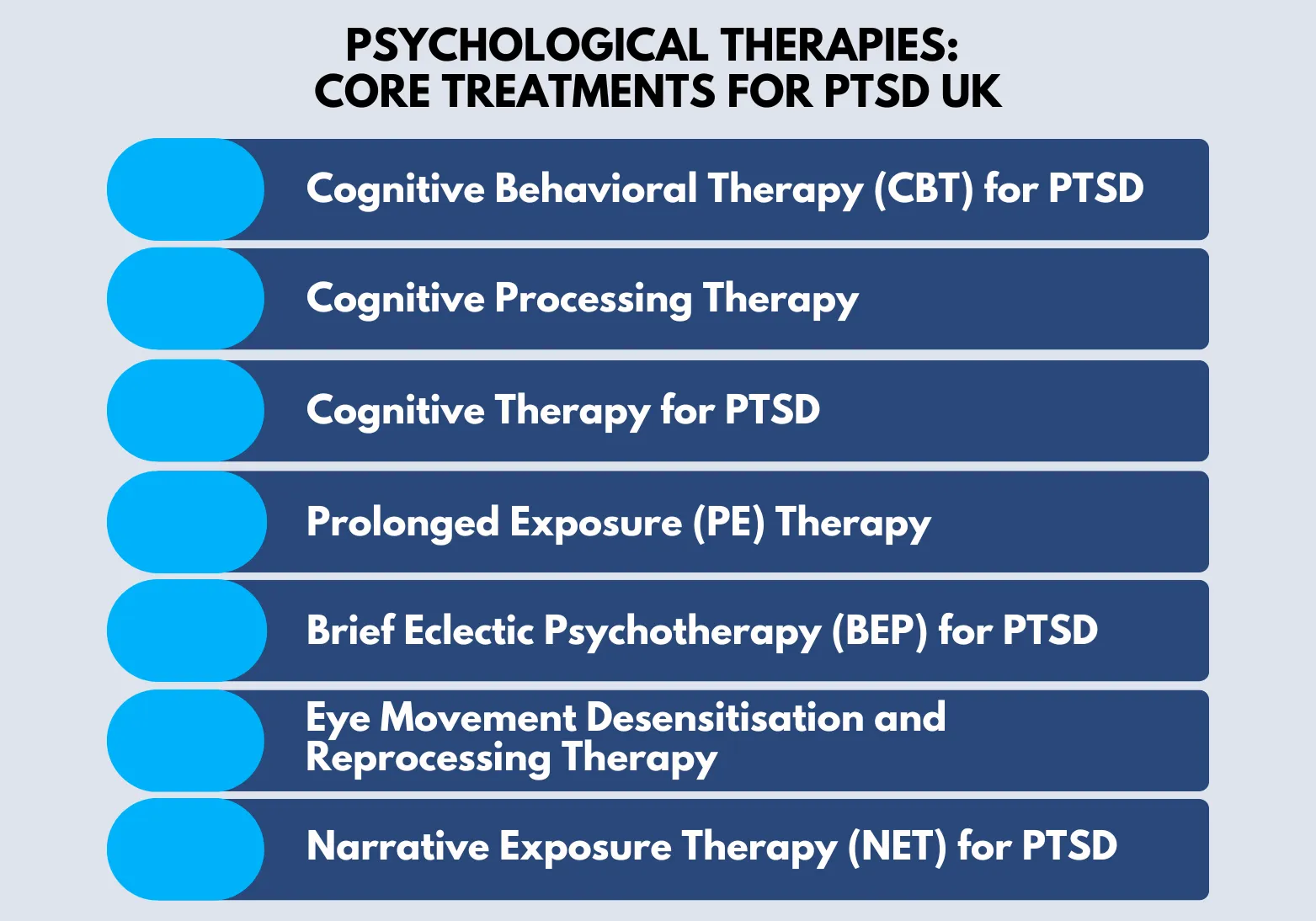
Building Coping Skills
- This therapy gives you useful tactics to handle anxiety, stress, and panic.
- You can apply these coping methods daily, inside and outside therapy.
- It’s a top-tier PTSD treatment for mastering your life.
For more information read about CBT Guide, Technique and Benefits
Cognitive Processing Therapy
CPT is a focused treatment for PTSD. It targets issues of guilt and shame. It’s a must for those affected by abuse, attack, or war-induced distress to request help. This makes it an important part of modern treatments for PTSD UK.
Key Benefits of CPT for PTSD Treatment
Identifying Stuck Points
- CPT helps you spot and challenge unhelpful beliefs that block healing.
- Beliefs like “It was my fault” are gently addressed and restructured.
- This process is vital in progressing through dealing with PTSD.
Structured Writing Tasks
- In CPT, the therapist helps you write about your trauma in detail.
- This writing method makes memories feel less heavy and helps sort out scattered thoughts.
- It delivers a sense of dominance and comfort as you heal.
Challenging Unhelpful Beliefs
- Counselors assist you in transforming pessimistic ideas into optimistic ones.
- CPT empowers people to trust themselves and others again.
- It is recognised as one of the most powerful approaches within treatments for PTSD UK.
Cognitive Therapy for PTSD
This therapy is the best process to manage PTSD. It pivots around memories and mental habits. It’s seen as a key psychological treatments for PTSD UK.
Key Benefits of Cognitive Therapy
Reducing the Sense of Current Threat
Cognitive Therapy helps you see that your trauma memories belong to the past. This insight halts your thoughts from acting as if you are still threatened.
Processing Memories
Therapy sessions break down confusing or terrifying memories into manageable pieces. You learn to view your trauma as one chapter in your life, not the whole story. This reduces daily anxiety and emotional overwhelm.
Changing Behaviors
Through therapy, you rebuild healthy habits that support recovery. You stop avoiding parts of life and start reconnecting with family, work, and social activities. Each small success strengthens your journey forward.
Prolonged Exposure (PE) Therapy
PE is a durable and consistent approach for PTSD. It helps you confront trauma memories directly, but in a safe space. PE remains one of the most trusted treatments for PTSD UK.
Key Benefits of Prolonged Exposure Therapy
Imaginal Exposure
- You practice recalling the traumatic event in detail while feeling supported.
- Over time, this helps the memory lose its intense emotional grip.
- You learn that remembering does not mean reliving the danger.
In Vivo Exposure
- You are gently exposed to real-life situations you fear.
- For example, visiting a crowded place if you avoid crowds after trauma.
- Gradual exposure helps reduce fear responses in daily life.
Reducing Avoidance Behaviors
- PE encourages you to face, rather than flee from, triggers.
- This builds confidence and leads to significant improvements.
Brief Eclectic Psychotherapy (BEP) for PTSD
BEP combines CBT methods for handling feelings. It is a short-term, highly structured form of ptsd treatment within the broader list of treatments for PTSD UK.
Key Benefits of Brief Eclectic Psychotherapy:
Focus on Emotions
- BEP helps you express suppressed feelings like anger, sadness, and shame.
- Naming emotions is important for healing from trauma.
- Many find this release essential for recovery.
Integration of Memories
- Therapy focuses on giving the trauma a place in your life story.
- It becomes a memory, not a current threat.
- This step is key to successfully dealing with PTSD.
Personal Meaning
- BEP encourages you to reflect on the meaning of the trauma.
- Some find strength, purpose, or deeper understanding through this process.
- It supports building resilience and new life goals.
Eye Movement Desensitisation and Reprocessing Therapy
EMDR is a singular and potent remedy for PTSD. It employs directed eye motions to handle distressing thoughts. It is a trusted PTSD treatment.
Key Benefits of EMDR for PTSD Treatment
Processing Without Speaking in Detail
You don’t have to explain your trauma in detail like you do in other therapies. EMDR permits the brain to reorganise memories quickly and safely. This is splendid for those who would rather stay silent.
Reduction of Emotional Distress
EMDR cuts down the emotional intensity linked to painful memories. After sessions, you may remember the event but feel calmer. This allows you to focus on the present.
Lasting Improvements
Studies show EMDR offers long-term symptom relief. Many patients feel better after fewer sessions compared to other therapies. It is a preferred choice in many treatments for PTSD UK plans.
Read more about EMDR Therapy.
Narrative Exposure Therapy (NET) for PTSD
NET is a fit for people who have overcome significant traumas. It is receiving focus as one of the latest treatments for PTSD UK.
Key Benefits of Narrative Exposure Therapy:
Organizing Traumatic Memories
- NET helps put fragmented memories into a structured timeline.
- Seeing your trauma as part of a bigger life story reduces confusion.
- It becomes easier to understand and heal.
Focus on Strength
- Therapy targets your strengths, tenacity, and will to survive. It instills a sense that you exceed your struggles.
- NET helps you rediscover hope and meaning.
Community Healing
- NET is sometimes done in groups, making it powerful for refugee survivors and war victims.
- Hearing others’ stories reduces feelings of isolation.
- Community healing is vital for those dealing with PTSD after major conflicts.
PTSD Medication UK
Sometimes, medicines are needed. Doctors can prescribe antidepressants, for example, sertraline or paroxetine. These are licensed for ptsd medication UK and can help with depression and anxiety linked to trauma.
Always consult your doctor before starting any medication.
Combination Treatments for PTSD UK
Often, combining therapy with ptsd medication uk gives the best results. Medication manages symptoms, while therapy deals with root causes. This is a common approach in many treatments for PTSD UK.
How to Deal with PTSD: Practical Tips
You can implement daily actions to boost vigor and stamina. Let’s look at ways of dealing with PTSD.
1. Challenge Your Healing Expectations
Healing is not fast. It is slow and steady. Some people believe healing means hiding the past. However, it usually means learning to live with it.
How to deal with PTSD better:
- Accept that bad days will happen
- Praise yourself for small wins
- Stay kind and patient with your progress
Caring for others can also enhance healing. Help out, fund a charity, or casually lend a hand to a mate. Positive actions restore hope.
2. Exercise to Heal Your Body and Mind
Fitness is a basic yet strong means. Exercise boosts endorphins, so it improves your mood. It also connects your body when your mind feels disarrayed.
Here are easy exercises to try:
- Brisk walking in a park
- Swimming in a local pool
- Dancing to your favourite songs
- Boxing classes or martial arts training

3. Build Strong Support Systems
Isolation feeds PTSD. Remain connected to friends, family, or support systems even when you’d rather not.
Ways to connect:
- Regular coffee chats with a trusted person
- Joining a PTSD treatment group
- Talking to a counselor online or face-to-face
A firm support system acts as a comfort zone when emotions feel loaded.
4. Create a Healthy Lifestyle
A sound body nurtures a sound mind. A positive daily schedule helps you manage your feelings better.
Steps for a healthy lifestyle:
Sleep
Aim for 7 to 9 hours of sleep each night
Diet
Eat fruits, vegetables, lean meats, and nuts
Relaxation
Practice yoga, meditation, or deep breathing
Avoid Alcohol and Drugs
They can worsen PTSD symptoms
Mindfulness apps, breathing techniques, and regular massages can help relax your body’s stress response.
Professional Help for PTSD Treatment
If self-help isn’t enough, finding professional support is essential.
The UK offers a range of treatments for PTSD UK through the NHS and private clinics.
Professional options:
- Trauma-focused CBT
- Eye Movement Desensitisation and Reprocessing
- PTSD expert witness reports for court cases
- Private psychiatric help specialising in ptsd medication uk
Sometimes you need a guide to light the way forward. If you are unsure, talk to your GP about ptsd treatment options available to you.
When to Seek Immediate Help
While coping strategies are useful, sometimes immediate professional help is needed, especially if:
- You have thoughts of self-harm
- You are struggling with substance abuse
- You cannot manage your daily life
In these cases, do not delay. Contact NHS services, crisis lines, or private psychologists specialising in treatment for PTSD.
Take the First Step Today
Living with PTSD is tough but manageable. To regain control of your life, seek the right treatments for PTSD UK. Develop sturdy support systems, be active, and embrace a healthy way of living.
If you seek aid for PTSD, bear in mind you don’t have to face this without company. Help is available, and healing is possible.
At Concise Medico, we provide expert care, support, and PTSD treatment plans. Reach out today and take the first step toward healing.

FAQs
Living with PTSD presents considerable difficulties. You can tackle PTSD, no matter if you experience it or are helping another who does. Situations can improve with time and help. This guide offers clear advice on handling PTSD. We’ll also look at the best treatments for PTSD UK residents seeking real support.
Understanding how PTSD affects you, and what steps you can take, is the first move toward healing. This blog is here to offer the full picture on dealing with PTSD and finding the right PTSD treatment when you need it most.
What is PTSD
Post-traumatic stress disorder is a basic mental health issue. It can arise after a person experiences or sees a threatening, or troubling event. PTSD can come from many things. It could be war, abuse, accidents, disasters, or personal losses.
According to the WHO, about 3.9% of the world population has had post-traumatic stress disorder (PTSD) at some stage in their lives.
Therefore, knowing what causes PTSD and spotting its early symptoms is the first big step in recovery.
Read more about Do I Have PTSD? Understand Post Traumatic Stress Disorder
As trauma expert Judith Lewis Herman said,
“The recovery process may be conceptualized in three stages: establishing safety, retelling the story of the traumatic event, and reconnecting with others. Treatment of posttraumatic disorders must be appropriate to the survivor’s stage of recovery.”
Judith Lewis Herman
Once you realise this, you can better find the right treatment for PTSD. You can also access the best treatments for PTSD UK.
Psychological Therapies: Core Treatments for PTSD UK
Treatments for PTSD UK, psychological therapies are often the first choice. They help you understand your feelings. They also help you work through trauma and build safety in your life.
Here are the key psychological treatments for PTSD UK that you should be aware of.
Cognitive Behavioral Therapy (CBT) for PTSD
CBT is the best process for handling PTSD. Its main goal is to help you shift unhealthy thoughts that can remain after trauma. CBT is a top choice among treatments for PTSD UK.
Key Benefits of CBT for Dealing with PTSD
Reframing Negative Thoughts
- CBT helps you find the harmful beliefs that keep trauma alive.
- If you blame yourself for what happened, CBT can help. It shifts your thinking to a kinder, fairer perspective.
- Changing your thoughts about trauma can make dealing with PTSD less heavy. It also creates room for healing.
Behavioral Exposure
- CBT helps you slowly face your fears. You’ll confront memories and situations that scare you.
- Facing these reminders in a safe way reduces the fear linked to them over time.
- It forms a key part of structured plans on how to deal with PTSD.

Building Coping Skills
- This therapy gives you useful tactics to handle anxiety, stress, and panic.
- You can apply these coping methods daily, inside and outside therapy.
- It’s a top-tier PTSD treatment for mastering your life.
For more information read about CBT Guide, Technique and Benefits
Cognitive Processing Therapy
CPT is a focused treatment for PTSD. It targets issues of guilt and shame. It’s a must for those affected by abuse, attack, or war-induced distress to request help. This makes it an important part of modern treatments for PTSD UK.
Key Benefits of CPT for PTSD Treatment
Identifying Stuck Points
- CPT helps you spot and challenge unhelpful beliefs that block healing.
- Beliefs like “It was my fault” are gently addressed and restructured.
- This process is vital in progressing through dealing with PTSD.
Structured Writing Tasks
- In CPT, the therapist helps you write about your trauma in detail.
- This writing method makes memories feel less heavy and helps sort out scattered thoughts.
- It delivers a sense of dominance and comfort as you heal.
Challenging Unhelpful Beliefs
- Counselors assist you in transforming pessimistic ideas into optimistic ones.
- CPT empowers people to trust themselves and others again.
- It is recognised as one of the most powerful approaches within treatments for PTSD UK.
Cognitive Therapy for PTSD
This therapy is the best process to manage PTSD. It pivots around memories and mental habits. It’s seen as a key psychological treatments for PTSD UK.
Key Benefits of Cognitive Therapy
Reducing the Sense of Current Threat
Cognitive Therapy helps you see that your trauma memories belong to the past. This insight halts your thoughts from acting as if you are still threatened.
Processing Memories
Therapy sessions break down confusing or terrifying memories into manageable pieces. You learn to view your trauma as one chapter in your life, not the whole story. This reduces daily anxiety and emotional overwhelm.
Changing Behaviors
Through therapy, you rebuild healthy habits that support recovery. You stop avoiding parts of life and start reconnecting with family, work, and social activities. Each small success strengthens your journey forward.
Prolonged Exposure (PE) Therapy
PE is a durable and consistent approach for PTSD. It helps you confront trauma memories directly, but in a safe space. PE remains one of the most trusted treatments for PTSD UK.
Key Benefits of Prolonged Exposure Therapy
Imaginal Exposure
- You practice recalling the traumatic event in detail while feeling supported.
- Over time, this helps the memory lose its intense emotional grip.
- You learn that remembering does not mean reliving the danger.
In Vivo Exposure
- You are gently exposed to real-life situations you fear.
- For example, visiting a crowded place if you avoid crowds after trauma.
- Gradual exposure helps reduce fear responses in daily life.
Reducing Avoidance Behaviors
- PE encourages you to face, rather than flee from, triggers.
- This builds confidence and leads to significant improvements.
Brief Eclectic Psychotherapy (BEP) for PTSD
BEP combines CBT methods for handling feelings. It is a short-term, highly structured form of ptsd treatment within the broader list of treatments for PTSD UK.
Key Benefits of Brief Eclectic Psychotherapy:
Focus on Emotions
- BEP helps you express suppressed feelings like anger, sadness, and shame.
- Naming emotions is important for healing from trauma.
- Many find this release essential for recovery.
Integration of Memories
- Therapy focuses on giving the trauma a place in your life story.
- It becomes a memory, not a current threat.
- This step is key to successfully dealing with PTSD.
Personal Meaning
- BEP encourages you to reflect on the meaning of the trauma.
- Some find strength, purpose, or deeper understanding through this process.
- It supports building resilience and new life goals.
Eye Movement Desensitisation and Reprocessing Therapy
EMDR is a singular and potent remedy for PTSD. It employs directed eye motions to handle distressing thoughts. It is a trusted PTSD treatment.
Key Benefits of EMDR for PTSD Treatment
Processing Without Speaking in Detail
You don’t have to explain your trauma in detail like you do in other therapies. EMDR permits the brain to reorganise memories quickly and safely. This is splendid for those who would rather stay silent.
Reduction of Emotional Distress
EMDR cuts down the emotional intensity linked to painful memories. After sessions, you may remember the event but feel calmer. This allows you to focus on the present.
Lasting Improvements
Studies show EMDR offers long-term symptom relief. Many patients feel better after fewer sessions compared to other therapies. It is a preferred choice in many treatments for PTSD UK plans.
Read more about EMDR Therapy.
Narrative Exposure Therapy (NET) for PTSD
NET is a fit for people who have overcome significant traumas. It is receiving focus as one of the latest treatments for PTSD UK.
Key Benefits of Narrative Exposure Therapy:
Organizing Traumatic Memories
- NET helps put fragmented memories into a structured timeline.
- Seeing your trauma as part of a bigger life story reduces confusion.
- It becomes easier to understand and heal.
Focus on Strength
- Therapy targets your strengths, tenacity, and will to survive. It instills a sense that you exceed your struggles.
- NET helps you rediscover hope and meaning.
Community Healing
- NET is sometimes done in groups, making it powerful for refugee survivors and war victims.
- Hearing others’ stories reduces feelings of isolation.
- Community healing is vital for those dealing with PTSD after major conflicts.
PTSD Medication UK
Sometimes, medicines are needed. Doctors can prescribe antidepressants, for example, sertraline or paroxetine. These are licensed for ptsd medication UK and can help with depression and anxiety linked to trauma.
Always consult your doctor before starting any medication.
Combination Treatments for PTSD UK
Often, combining therapy with ptsd medication uk gives the best results. Medication manages symptoms, while therapy deals with root causes. This is a common approach in many treatments for PTSD UK.
How to Deal with PTSD: Practical Tips
You can implement daily actions to boost vigor and stamina. Let’s look at ways of dealing with PTSD.
1. Challenge Your Healing Expectations
Healing is not fast. It is slow and steady. Some people believe healing means hiding the past. However, it usually means learning to live with it.
How to deal with PTSD better:
- Accept that bad days will happen
- Praise yourself for small wins
- Stay kind and patient with your progress
Caring for others can also enhance healing. Help out, fund a charity, or casually lend a hand to a mate. Positive actions restore hope.
2. Exercise to Heal Your Body and Mind
Fitness is a basic yet strong means. Exercise boosts endorphins, so it improves your mood. It also connects your body when your mind feels disarrayed.
Here are easy exercises to try:
- Brisk walking in a park
- Swimming in a local pool
- Dancing to your favourite songs
- Boxing classes or martial arts training

3. Build Strong Support Systems
Isolation feeds PTSD. Remain connected to friends, family, or support systems even when you’d rather not.
Ways to connect:
- Regular coffee chats with a trusted person
- Joining a PTSD treatment group
- Talking to a counselor online or face-to-face
A firm support system acts as a comfort zone when emotions feel loaded.
4. Create a Healthy Lifestyle
A sound body nurtures a sound mind. A positive daily schedule helps you manage your feelings better.
Steps for a healthy lifestyle:
Sleep
Aim for 7 to 9 hours of sleep each night
Diet
Eat fruits, vegetables, lean meats, and nuts
Relaxation
Practice yoga, meditation, or deep breathing
Avoid Alcohol and Drugs
They can worsen PTSD symptoms
Mindfulness apps, breathing techniques, and regular massages can help relax your body’s stress response.
Professional Help for PTSD Treatment
If self-help isn’t enough, finding professional support is essential.
The UK offers a range of treatments for PTSD UK through the NHS and private clinics.
Professional options:
- Trauma-focused CBT
- Eye Movement Desensitisation and Reprocessing
- PTSD expert witness reports for court cases
- Private psychiatric help specialising in ptsd medication uk
Sometimes you need a guide to light the way forward. If you are unsure, talk to your GP about ptsd treatment options available to you.
When to Seek Immediate Help
While coping strategies are useful, sometimes immediate professional help is needed, especially if:
- You have thoughts of self-harm
- You are struggling with substance abuse
- You cannot manage your daily life
In these cases, do not delay. Contact NHS services, crisis lines, or private psychologists specialising in treatment for PTSD.
Take the First Step Today
Living with PTSD is tough but manageable. To regain control of your life, seek the right treatments for PTSD UK. Develop sturdy support systems, be active, and embrace a healthy way of living.
If you seek aid for PTSD, bear in mind you don’t have to face this without company. Help is available, and healing is possible.
At Concise Medico, we provide expert care, support, and PTSD treatment plans. Reach out today and take the first step toward healing.

